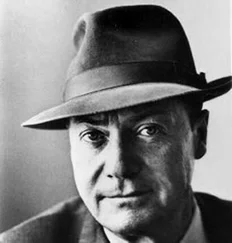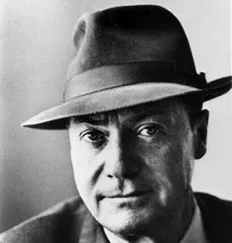Ross Macdonald - The drowning pool
Здесь есть возможность читать онлайн «Ross Macdonald - The drowning pool» весь текст электронной книги совершенно бесплатно (целиком полную версию без сокращений). В некоторых случаях можно слушать аудио, скачать через торрент в формате fb2 и присутствует краткое содержание. Жанр: Крутой детектив, на английском языке. Описание произведения, (предисловие) а так же отзывы посетителей доступны на портале библиотеки ЛибКат.
- Название:The drowning pool
- Автор:
- Жанр:
- Год:неизвестен
- ISBN:нет данных
- Рейтинг книги:5 / 5. Голосов: 1
-
Избранное:Добавить в избранное
- Отзывы:
-
Ваша оценка:
- 100
- 1
- 2
- 3
- 4
- 5
The drowning pool: краткое содержание, описание и аннотация
Предлагаем к чтению аннотацию, описание, краткое содержание или предисловие (зависит от того, что написал сам автор книги «The drowning pool»). Если вы не нашли необходимую информацию о книге — напишите в комментариях, мы постараемся отыскать её.
, Lew Archer takes this case in the L.A. suburbs and encounters a moral wasteland of corporate greed and family hatred—and sufficient motive for a dozen murders.
The drowning pool — читать онлайн бесплатно полную книгу (весь текст) целиком
Ниже представлен текст книги, разбитый по страницам. Система сохранения места последней прочитанной страницы, позволяет с удобством читать онлайн бесплатно книгу «The drowning pool», без необходимости каждый раз заново искать на чём Вы остановились. Поставьте закладку, и сможете в любой момент перейти на страницу, на которой закончили чтение.
Интервал:
Закладка:
“I usually get myself a bite and java round about two o’clock.”
“Yeah, it’s sure as hell. Murder certainly breaks up a man’s schedule.”
The speedometer needle jumped ten miles, as if it was attached directly to his heartbeat. “Did you say murder?”
“Right.”
“Somebody get it, or somebody going to get it?”
“Somebody got it.”
“I don’t like messing with killings.”
“Nobody does. Just keep that car in sight, and vary your distance.”
The black car stopped with a blaze of brake-lights at the Cahuenga stoplight, and my driver made a mistake. Before it turned left, he pulled up close to it. Reavis looked back, his eyes wide and black in our headlights, and spoke to the chauffeur. I cursed under my breath, and hoped that he was discussing the beauty of the night.
He wasn’t. Once the limousine got onto the Freeway, it began to move at the speed it was built for. Our speedometer needle moved up to eighty and stayed there like the hand of a stopped clock. The tail-lights disappeared around a curve and were gone when we rounded the next curve on whining tires.
“Sorry,” the driver said, his head and body rigid over the wheel. “That Caddie can hold a hundred from here to San Francisco. Anyway, it probably turned off on Lankershim.”
Chapter 11
Graham Court had changed in the hour or so since I had seen it last. The place had the same abandoned ugliness, the same foul-breathed atmosphere of people living desperately on their uppers, but these things had lost a part of their reality. By stepping out of it into a limousine which took him into the company of Mrs. Kilbourne, Reavis had given the place a new dimension: the possibility that there was more behind the thin warped walls than drinking and poverty, copulation and despair. For Reavis, at least, Graham Court was a place where anything could happen: the low-life set where actors played at being poor for a thousand dollars a day; the slum where the handsome prince lived incognito.
In the first cottage, a woman sighed mournfully in her sleep, and a man’s blurred growl instructed her to shut her big loud yap. A radio chirped like a frenzied cricket in the shack at the front of the row, where someone was listening to an all-night disc-jockey or had forgotten to turn it off. Reavis’s was the third from the street on the left. The door opened at the first try with an ordinary passkey. I closed it behind me and found the light-switch beside it.
The room precipitated out of darkness and enclosed me in a dingy wallboard cube. The light was a paper-shaded bulb in a hanging double socket, drawn sideways by a cord which ran to a nail in the wall and down the wall to a two-burner electric plate. There were dark crumbs on the oilcloth-covered table beside the burner, and some of them were moving. A chest of drawers sagged against the opposite wall, its veneer flaked like crackleware. Its top, indented with charred cigarette burns, held a bottle of barbershop hair-oil and a pair of military brushes in a pigskin case initialed P.M.R.
I went through the drawers and found two laundered shirts, two pairs of cotton socks in brilliant patterns, a change of underclothes, a cardboard box bearing a Sheik label and a colored picture of the Sheik himself, a blue silk ribbon signifying second place in Junior Field and Track at Camp Mackenzie, wherever that was, in 1931; and a carton of cardboard matchfolders. The carton was nearly full, and each of the folders bore the legend, printed in gold on black: Compliments of Patrick “Pat” Reavis. The bottom drawer contained dirty clothes, including the Hawaiian shirt.
An iron bed in the left-hand corner of the room opposite the door took up about a quarter of the floor space. It was covered with a U.S. Navy blanket. The pictures on the wall above the bed seemed to go with the blanket. They were photographs of nude women, both glossy prints and cutouts, perhaps a dozen of each. Gretchen Keck was among them, the face above the soft young body set in a smiling tetany of embarrassment. The picture in the drawer of the table by the bed were more unusual. They included a set of the Herculaneum murals, which did not mean that Reavis was an amateur archaeologist. There was nobody there that I knew. Opposite the bed a faded green curtain, hung from a curved iron pipe, enclosed a sink and toilet and a portable shower stall sheathed with rusting metal. A pool of dirty water spread across the rotting linoleum and darkened the hem of the curtain.
Without getting down on my knees, I reached far under the bed and brought out a cardboard suitcase with scuffed leather corners. It was locked, but the cheap clasp loosened when I gave the lid a sharp upward kick with my heel. I dragged it under the light and wrenched it open. Beneath a mouldy smelling tangle of dirty shirts and socks, the bottom of the suitcase was lined with disordered papers. Most of them were personal letters written in uniformed hands and signed with girls’ names or nicknames; exceedingly personal letters. I sampled one which began: “My Dearest Darling: You drove me just wild the other night,” and ended: “Now that I know what love is all about, my Dearest Darling, you won’t go away and leave me—write and say you won’t.” Another, in a different hand, began: “Dear Mister Reavis,” and ended: “I love you pashunitly with all my haert.”
There were official discharge papers which stated that one Patrick Murphy Ryan, born in Bear Lake County, Kentucky, on February 12, 1921, had enlisted in the U.S. Marine Corps on June 23, 1942, in San Antonio, Texas, and been discharged in San Diego in December of the same year, dishonorably. Ryan’s civilian experience was listed as agriculturalist, garage mechanic, and oil well maintenance apprentice, and his preferred occupation as commercial airplane pilot. There was a copy of an application for National Service Life Insurance in the amount of two thousand dollars, made out by the same Patrick Ryan, and dated July 2, 1942. It requested that the policy be mailed to Elaine Ryan Cassidy, R.R. 2, Bear Lake, Kentucky. She could be his mother, his sister, or his ex-wife.
The name Elaine appeared again, this time with a different surname, on a torn and empty envelope crumpled in a corner of the suitcase. The envelope was addressed to Mr. Patrick Ryan, Graham Court, Los Angeles, and postmarked Las Vegas, July 10, that year. The return address was scribbled across the ripped flap: Mrs. Elaine Schneider, Rush apts., Las Vegas, Nev. If this was the same Elaine who had been sent Pat’s insurance policy, she was one woman he trusted. And Las Vegas wasn’t far, as the buzzard flies. I memorized the address.
I was going through the bundle of letters, looking for the one that matched the empty envelope, when a breeze blew light and cold on the back of my neck. I picked up one of the letters and straightened slowly without turning, as if to have light to read by; then slowly turned with the letter in my hands. The door was ajar a few inches, pure darkness beyond.
I reached for the light-switch. A hand came through the aperture, pushing it wider, and closed on my wrist: fingers like curled white sausages, speckled with short black bristles. It pulled me further off balance and my head slammed against the wall. The wallboard crunched. A second hand closed on my arm and began to bend it around the edge of the door. I set one foot against the door-jamb and brought the hands into the room. The hands, then the arms, then the shoulders. When whole man came, he brought the door along with him. It fell against the green curtain with very little noise.
His nose and brows were brown fungus growing on a thick stump of face. Small eyes like shiny black beetles lived in it. They burrowed out of sight when I struck at them with my free hand, and reappeared again. I hurt my hand on the thick chin. The head rolled away with the punch and came back grinning at me.
Читать дальшеИнтервал:
Закладка:
Похожие книги на «The drowning pool»
Представляем Вашему вниманию похожие книги на «The drowning pool» списком для выбора. Мы отобрали схожую по названию и смыслу литературу в надежде предоставить читателям больше вариантов отыскать новые, интересные, ещё непрочитанные произведения.
Обсуждение, отзывы о книге «The drowning pool» и просто собственные мнения читателей. Оставьте ваши комментарии, напишите, что Вы думаете о произведении, его смысле или главных героях. Укажите что конкретно понравилось, а что нет, и почему Вы так считаете.












